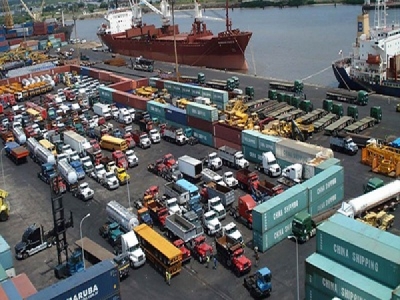
Posted on November 5, 2018
Hope springs eternal, a human inclination affecting romance, dieting, new year’s resolutions, and a good deal more. International investing is prominent among the activities often influenced by a hope that things somehow will work out, whatever the landmines known to obstruct the path toward healthy economic returns.
Which brings us to the tale of Process and Industrial Developments Limited (P&ID), a British-based engineering and project management company. In 2010 P&ID and the government of Nigeria finalized an agreement the central terms of which were that P&ID would build a state-of-the-art natural gas processing plant along the Nigerian coast. The plant would process “wet” gas (natural gas combined with natural gas liquids) produced as a byproduct of offshore crude oil production, separating the dry gas from the liquids; the former would be used by the Nigerian government to power part of the national electric grid, while the liquids would be retained and sold by P&ID, the proceeds of which would represent its compensation for the capital investment and the costs of operating the plant.
For the Nigerian government, the economic value of the natural gas to be used for power production is not trivial. Nigerian electric generating capacity (potential) is over 12,500 megawatts (MW); of that, only about 4000 MW actually produce power on a daily average, essentially because of constraints on natural gas supplies, and one recent study reports that average daily power availability is only four hours. Can anyone doubt that additional natural gas supplies and power availability would provide real economic value? World Bank data show that only 59 percent of the Nigerian population had access to electric power in 2016; for the urban and rural populations, the respective figures were 86 percent and 41 percent. (“Access” in this context must mean connection to the power grid.) The data reported by USAID are similar, but lower, perhaps because of differences in definitions: 45 percent overall, with the respective urban and rural figures at 55 percent and 36 percent.
In addition to the economic value of the dry gas to be used for electricity generation, notice also that this arrangement shifted a good deal of risk away from the Nigerian government onto P&ID, because the delivered dry gas would be available for power production in the agreed quantities regardless of shifts in the international price of (liquified) natural gas, while the risks created by prospective fluctuations in the prices of natural gas liquids were borne entirely by P&ID. This favorable risk dynamic for Nigeria was very different from that characterizing the production and sale of crude oil from Nigerian offshore fields. The agreement was for 20 years, with delivery of wet gas to the plant beginning at 150 million cubic feet per day, rising to 400 million.
Sounds like a win-win? Not so fast: The Nigerian government failed to provide the land needed for the plant or the pipeline for delivery of the wet gas, resulting in a loss of over $1.1 billion worth of natural gas that otherwise could have been used to generate electricity. As much as 275 billion cubic feet of gas has been flared (that is, wasted) instead.
In a subsequent arbitration proceeding, P&ID claimed that the Nigerian government failures constitute a default on the agreement. In January of 2017, a London tribunal authorized under the Nigerian Arbitration and Conciliation Act ruled that Nigeria must pay P&ID $6.6 billion in damages and $2.3 billion in interest. A U.S. district judge has set aside the default ruling, but has refused to dismiss the case, and P&ID currently is pursuing litigation in U.S. federal court to enforce the arbitration award. And so the legal tug of war continues, and the attorneys continue to bill their hours.
But the ability of the lawyers to win regardless of the legal outcome is not the central lesson to be learned. Instead: Hope should not be allowed to spring eternal, particularly in the context of deals, however profitable in theory, negotiated with parties with only weak incentives to hold up their ends of the bargains. Notice that the Fraser Institute summary economic freedom index for Nigeria places it at number 118 of 162 nation-states. The Corruption Perceptions Index published by Transparency International places Nigeria (in a tie with Comoros and Guinea) at number 148 out of 180 countries.
Did P&ID not understand these realities? Agreements are not self-enforcing, and local courts often are subject to heavy political pressures and overt and covert threats not customary in nations with a strong tradition of respect for the rule of law. Even agreed arbitration in venues with such strong traditions is costly to pursue, to be followed by lengthy litigation and maneuverings; and enforcement of final judgments is no trivial matter in the context of government officials who bear no personal or political downsides from reneging on agreements or from endless litigation.
It is not only Nigeria. Western energy firms repeatedly have suffered the consequences of great deals gone bad in nations with weak enforcement of contractual obligations and the rule of law. Once a significant capital investment has been made, powerful incentives are created to capture the economic value of those investments (“quasi-rents” in econ-speak) by reneging and other strategic behavior.
The irony is that such behavior is detrimental for the economy in question. Just as Nigeria has lost an important opportunity for valuable additions to its power production, so does enforcement of contracts and the rule of law bestow the kinds of large economic benefits familiar in nations that do so, even if given officials might benefit personally from a form of corruption. In the context of the P&ID deal, this is a lesson that Nigerian officials interested in realizing the tremendous potential of their country should ponder.
Benjamin Zycher is a resident scholar at the American Enterprise Institute.
Source: AEI





